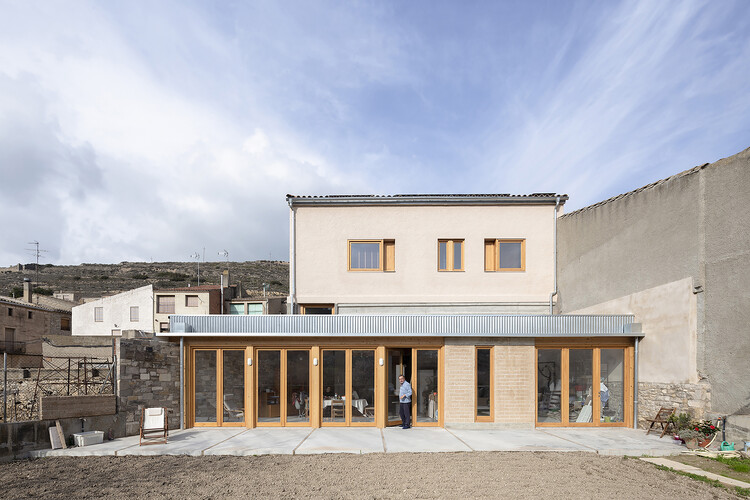
More Specs

Text description provided by the architects. The project proposes the rehabilitation of an agricultural warehouse, reprogrammed as a "senior" cohabitation. In order to accommodate two-family units in the same building, the lifestyle of each individual family was studied. This allowed us to plan and reorganize the spaces according to each use, specific to the degree of collectivization required at each moment. Individual, couple, collective, and even neighborhood spaces were incorporated.





























